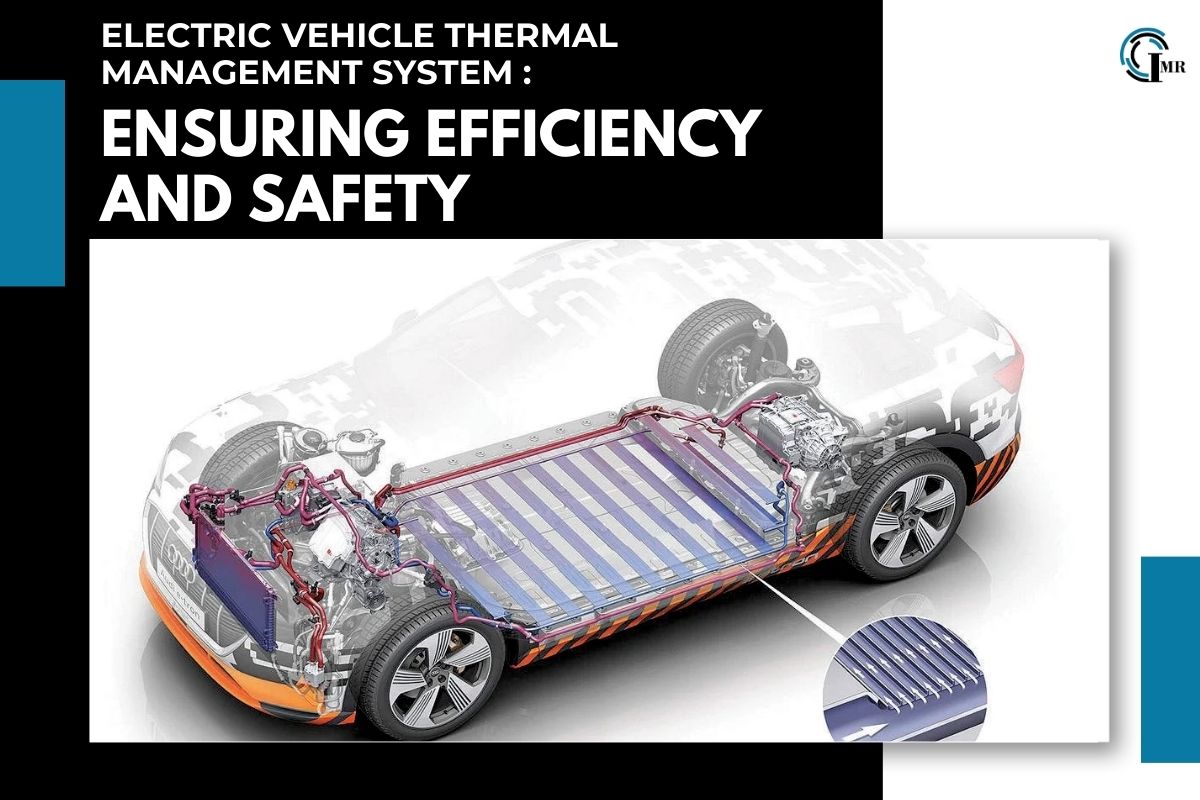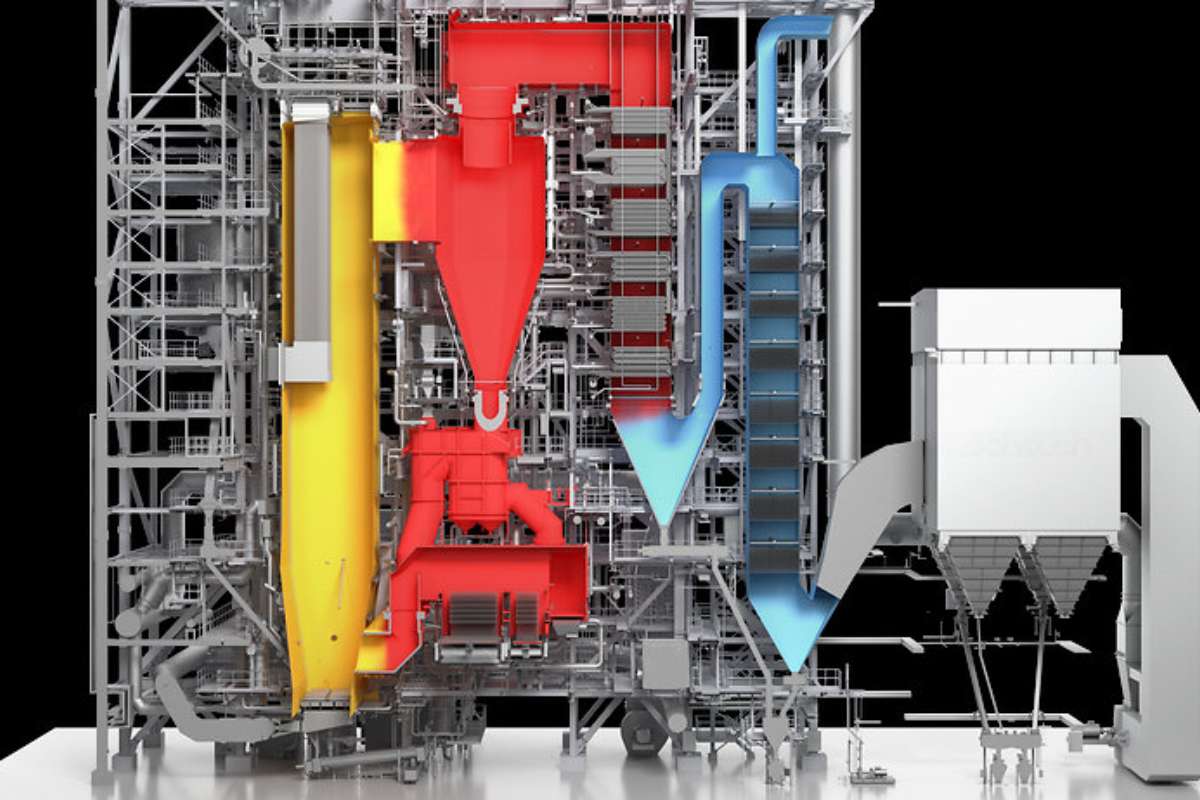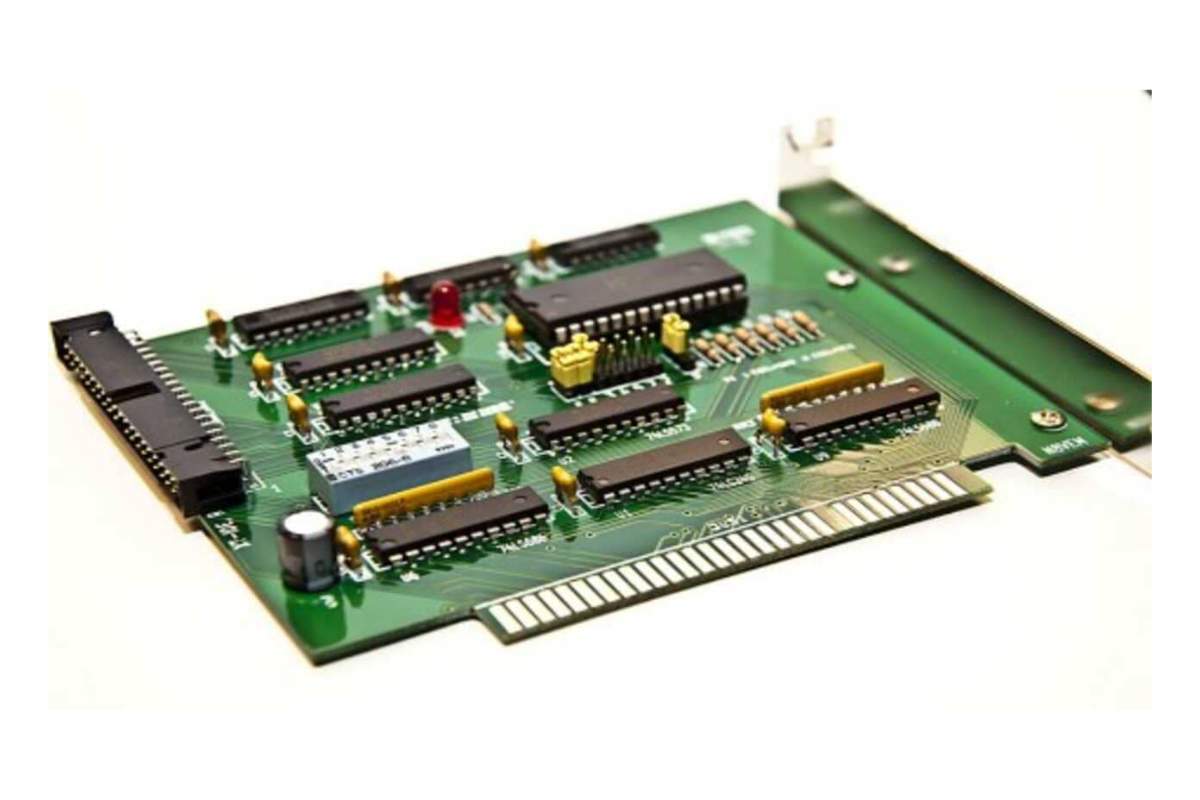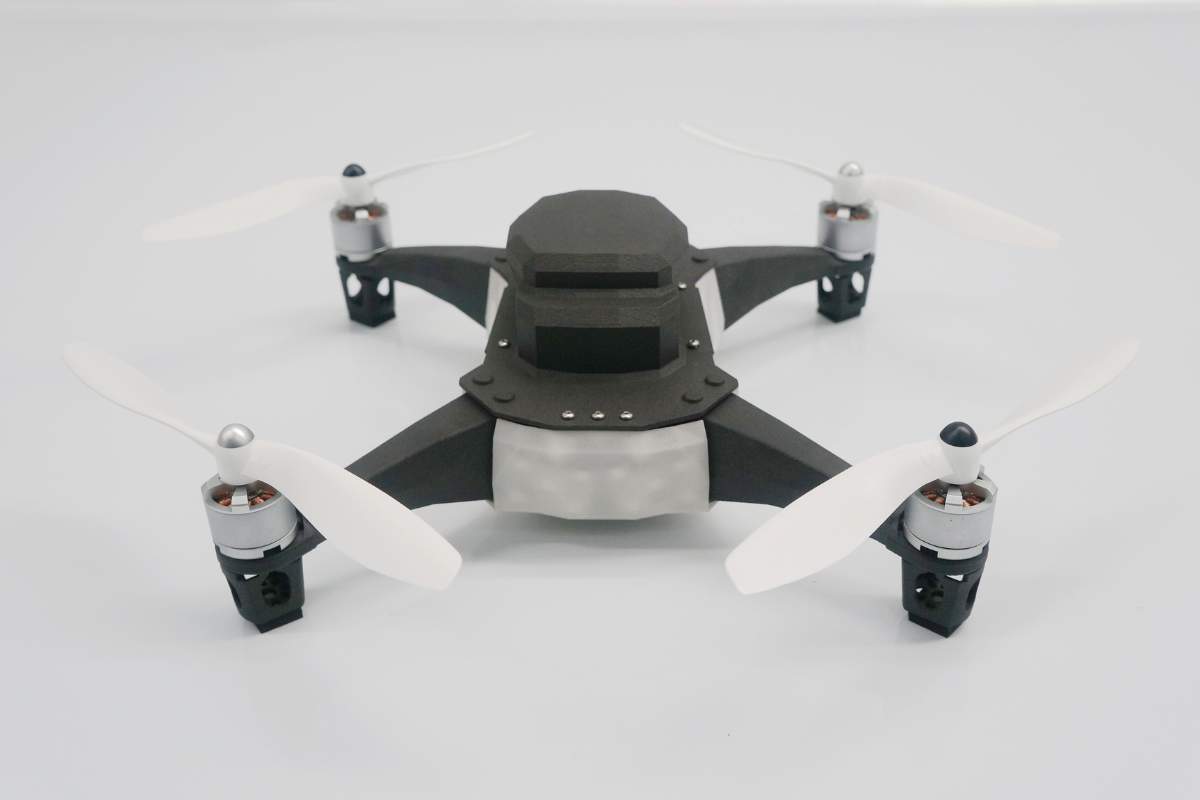(Source – Automotive News)
Electric vehicles (EVs) are transforming the automotive landscape, promising greener transportation and reduced emissions. However, the efficiency and longevity of EVs heavily depend on effective thermal management systems (TMS). These systems are crucial for maintaining optimal temperatures for various components, including the battery, power electronics, and motor. This article delves into the intricacies of Electric Vehicle Thermal Management Systems, their components, challenges, advancements, and future trends.
Components of Electric Vehicle Thermal Management Systems
The electric vehicle thermal management system in an EV is a complex assembly designed to maintain the temperature of various components within a specific range. The main components include:
Battery Thermal Management: The battery is the heart of an EV and requires precise temperature control. High temperatures can degrade battery life and efficiency, while low temperatures can reduce performance. Battery thermal management systems (BTMS) use liquid cooling, air cooling, or phase change materials to regulate temperatures.
Power Electronics Cooling: Inverters, converters, and other power electronics generate substantial heat during operation. Effective cooling mechanisms, such as liquid cooling systems or heat sinks, are essential to prevent overheating and ensure reliable performance.
Motor Cooling: The electric motor also generates heat, especially during high power output. Liquid cooling is often used to dissipate this heat efficiently, although some systems may use air cooling or a combination of both.
Cabin Heating and Cooling: Unlike internal combustion engine vehicles, EVs do not have waste heat from the engine to use for cabin heating. Therefore, EVs rely on heat pumps or resistive heaters for cabin climate control. Efficient thermal management is necessary to balance cabin comfort with minimal energy consumption.
Thermal Insulation and Heat Exchangers: Proper insulation and efficient heat exchangers are vital for minimizing heat loss and optimizing the thermal management process across various components.
Challenges in EV Thermal Management
Thermal management in EVs presents unique challenges that differ significantly from traditional vehicles. Addressing these challenges is crucial for improving EV performance and reliability.
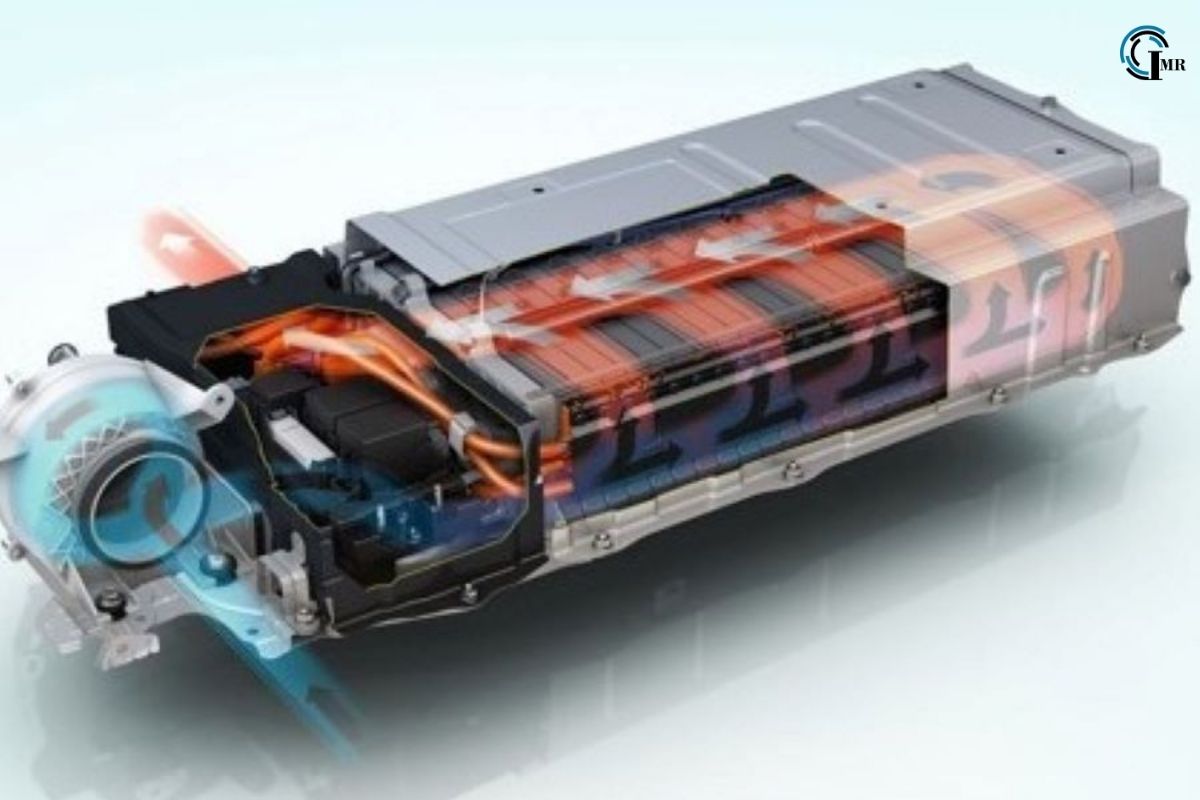
Temperature Extremes: EV components must operate efficiently across a wide range of temperatures. Extreme cold can reduce battery efficiency, while high temperatures can cause overheating and damage. Designing systems that can handle these extremes without compromising performance is a significant challenge.
Energy Efficiency: Electric vehicle thermal management systems must consume minimal energy to maximize the overall efficiency of the EV. Balancing effective cooling and heating with low energy consumption requires innovative solutions and materials.
Space Constraints: EVs have limited space for additional components. Integrating a comprehensive electric vehicle thermal management system without adding excessive weight or taking up too much space is a complex task.
Cost Considerations: Advanced thermal management systems can be expensive. Finding cost-effective solutions that do not compromise on performance or safety is essential for making EVs more affordable.
Durability and Reliability: The electric vehicle thermal management system must be durable and reliable, capable of withstanding the rigors of daily use over the lifespan of the vehicle. This includes resistance to wear, and tear, and environmental factors such as humidity and dust.
Advancements in Thermal Management Technologies
Recent advancements in thermal management technologies are helping to address these challenges, leading to more efficient and reliable EVs. Some of the notable innovations include:
Liquid Cooling Systems: Liquid cooling is more efficient than air cooling for dissipating heat. Advances in coolant materials and cooling circuit designs are improving the efficiency and reliability of liquid cooling systems in EVs.
Phase Change Materials (PCMs): PCMs can absorb and release large amounts of heat as they change phases, making them effective for thermal management. These materials are being integrated into battery packs to regulate temperature more effectively.
Heat Pumps: Heat pumps are being increasingly used for both cabin heating and cooling. They are more energy-efficient than resistive heaters and can provide heating and cooling from a single system.
Thermal Interface Materials (TIMs): Improved TIMs enhance the heat transfer between components and their cooling systems. These materials are crucial for maintaining efficient thermal pathways, particularly in power electronics and battery packs.

Advanced Control Systems: The integration of sophisticated sensors and control algorithms allows for more precise monitoring and management of temperatures. These systems can dynamically adjust cooling and heating based on real-time data, optimizing performance and efficiency.
Future Trends in EV Thermal Management
The future of EV thermal management looks promising, with several emerging trends poised to enhance efficiency and reliability even further.
Integrated Thermal Management: Future systems will likely integrate the thermal management of all components into a single, cohesive system. This integration can improve overall efficiency and reduce the complexity of the thermal management process.
Advanced Materials: The development of new materials with superior thermal conductivity and durability will play a significant role. These materials will enable more efficient heat transfer and improve the longevity of thermal management components.
Artificial Intelligence and Machine Learning: AI and machine learning algorithms can optimize thermal management by predicting thermal loads and adjusting systems proactively. These technologies can enhance the efficiency and responsiveness of electric vehicle thermal management systems.

Energy Harvesting: Future systems might incorporate energy harvesting technologies to capture and reuse waste heat. This could improve the overall energy efficiency of EVs and reduce the load on electric vehicle thermal management systems.
Wireless Thermal Management: Emerging wireless technologies could enable more flexible and efficient thermal management solutions. Wireless sensors and control systems could simplify the design and improve the reliability of thermal management in EVs.
Practical Tips for EV Owners
For EV owners, understanding and optimizing the thermal management of their vehicles can enhance performance and longevity. Here are some practical tips:
Regular Maintenance: Ensure that the electric vehicle thermal management system is regularly inspected and maintained. This includes checking coolant levels, inspecting for leaks, and ensuring that all components are functioning correctly.
:Whenever possible, avoid exposing your EV to extreme temperatures. Park in shaded areas during hot weather and use garage parking during cold weather to help maintain optimal operating conditions.
Use Preconditioning: Many EVs allow for preconditioning, which can heat or cool the cabin and battery before driving. Using this feature while the vehicle is still plugged in can reduce the thermal load during driving and improve efficiency.
Monitor Performance: Keep an eye on the vehicle’s performance, particularly in terms of range and charging times. Sudden changes can indicate issues with the electric vehicle thermal management system that need to be addressed.
Upgrade When Possible: As new technologies become available, consider upgrading the thermal management components of your EV. Newer systems can offer improved performance and efficiency, extending the life of your vehicle.
In conclusion, the thermal management system is a critical component of electric vehicles, ensuring that all parts operate within their optimal temperature ranges. As technology advances, electric vehicle thermal management systems are becoming more efficient, reliable, and integrated, paving the way for the next generation of EVs. Understanding the importance of these systems and staying informed about the latest advancements can help EV owners get the most out of their vehicles while contributing to a greener future.

